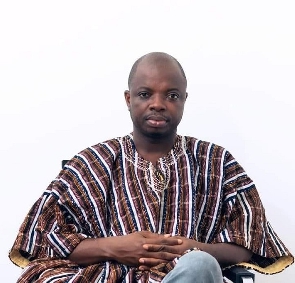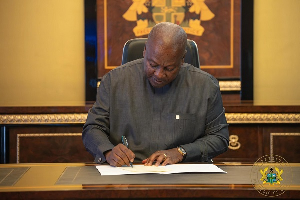A controversial decision by administrators at the Sunyani-based University of Energy and Natural Resources (UENR) to remove several large trees from the campus to make room for new academic buildings has angered an eco-activist who claims that trees are essential for ecosystem functions such as carbon capture, oxygen production, and air filtration.
Mr. Kwame Baffoe Abronye, the Bono regional Chairman of the ruling New Patriotic Party (NPP) and an eco-activist, has expressed concern about the destruction of the ecosystem at the university in Sunyani.
In an interview with a Sunyani-based Space FM station, he mentioned that any time he’s in Sunyani to perform either political or family duties, he always has his daily preps under the trees at the university and has witnessed first-hand the beauty and importance of the natural environment on campus.
He stated: "It is very concerning to see the destruction of the ecosystem at the university," said Mr. Abronye. "As an eco-activist, I understand the importance of preserving our natural environment for future generations. The trees on this campus provide shade, clean air, and are an important habitat for birds and other wildlife."
Mr. Abronye went on to urge the university administration to prioritize sustainability and explore alternative ways of building without destroying the natural environment.
"I urge the university to consider sustainable building practices, such as green roofs, solar panels, and other technologies that can reduce our impact on the environment," he said. "We must all work together to protect our planet and ensure a sustainable future for all."
The new structures, according to Chairman Kwame Baffoe Abronye, are required to handle the school's expanding student body and add to the available classroom space. He counters, though, that alternative options have been considered and that cutting down the trees is a last choice.
In an additional update, several students who wished to remain anonymous shared their concerns with this reporter regarding the ongoing phenomenon. They emphasized the importance of the trees as a crucial aspect of the campus landscape, providing not only aesthetic beauty but also a sense of tranquility and peace. Their words highlight the value that the trees hold for both the campus and its students.
One anonymous student expressed their love and appreciation for the trees on campus and conveyed their concern about the prospect of the trees being cut down.
They firmly believe that there must be alternative approaches to construction that do not require the destruction of these precious natural resources.
Their sentiments reflect the shared desire among many students to preserve the campus environment while pursuing development.
The issue has spawned a larger discussion regarding the contribution that institutions may make to environmental sustainability and preservation. Some contend that universities have a duty to set an example and give environmental stewardship top priority when making decisions.
According to John Smith, an environmental science professor at Greenfield University, "universities have a unique opportunity to educate the next generation of leaders about the importance of sustainability and environmental protection. Cutting down trees to construct new buildings sends the wrong message and undercuts our efforts to establish a more sustainable future".
Regional News of Monday, 8 May 2023
Source: Seth Opoku Agyemang,Contributor













